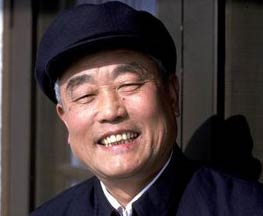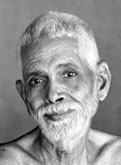 In the UK, there is a TV series ‘Grumpy Old Men’ I think it is supposed to be a comedy programme, where middle aged men rant and complain about everything from the price of petrol to the overbearing popularity of American Idol. In a way their complaints are mildly amusing, but, it did get me thinking – Is that how I want to be in 20-30 years – always complaining and being grumpy? Often we see people who, in their early life, have a sympathetic, hopeful and positive mind. But, 30 years later, those positive qualities have slowly been eroded and replaced with a propensity towards being grumpy, miserable and negative. How can we ensure that we avoid the ‘grumpy old man’ syndrome and remain positive throughout our advancing years?
In the UK, there is a TV series ‘Grumpy Old Men’ I think it is supposed to be a comedy programme, where middle aged men rant and complain about everything from the price of petrol to the overbearing popularity of American Idol. In a way their complaints are mildly amusing, but, it did get me thinking – Is that how I want to be in 20-30 years – always complaining and being grumpy? Often we see people who, in their early life, have a sympathetic, hopeful and positive mind. But, 30 years later, those positive qualities have slowly been eroded and replaced with a propensity towards being grumpy, miserable and negative. How can we ensure that we avoid the ‘grumpy old man’ syndrome and remain positive throughout our advancing years?
Don’t Get Stuck in a Rut
When we get stuck in a rut, life seems listless and boring. When there is no newness in life we have more time to observe the failings of others, ourselves and the world. If we are always complaining about the same things in life, try to do something different. Unfortunately, it is possible to develop a subtle enjoyment of being negative. The mind gets a certain misplaced pleasure by being grumpy and complaining. But, this kind of happiness is extremely limited. Look for ways to observe life in a new way; remain dynamic and don’t leave yourself time to become overwhelmed with negativity. If necessary, force yourself to try a completely new skill or activity. – Ten Tips to get out of a rut
Don’t Get Exasperated Over Things You Have No Control.
If the price of oil increases, there is not much you can do about it. Just because you incessantly complain about the price of oil, Saudi Arabia is not going to start producing an extra 10 million barrels a day. If you get upset things like this, you will invariably make yourself miserable. To some extent, we have to be accepting of external things beyond our control. For example, Governments always have and always will do things which are popular; we can’t expect this to change. But, what we can do is change our attitude. Rather than getting worked up by these things, we can develop a greater sense of detachment. Don’t allow your life to be dominated by complaints on the outside world.
Have Perspective of Young Child

We never refer to ‘grumpy young children’. True, a child may may have a temporary bad mood; but, they will soon shake it off. To a child the world is simple and a place of wonder. Life is not complicated but something to enjoy. A child does not spend his time criticising things, he just plays and enjoys life. The problem is that we feel that because we are sophisticated adults we must be much better. But, how is it progress if we move from a positive attitude to a miserable attitude? It doesn’t matter how old we are; what matters is our inner attitude. If we can feel we have a childlike heart it will help considerably in avoiding grumpiness. Even observing the simple smile of a child will help put a smile on our face. – Life Lessons we can learn from children
Leave Criticism To Others
Criticism and grumpiness are intricately linked. If we spend all our time criticising and gossiping about others, we will develop a negative mindset. The problem is that in this world it is easy to find things to criticise. The truth is we could spend all day judging and criticising other people and we would not have even made a start. The world is not going to change just because we sit in a pub criticising others. What happens is that as we criticise the world, it gives us a subconscious feeling of superiority and this motivates us to spend more time criticising. However, if we want real happiness, we have to take a positive attitude; looking for good things to encourage – making a positive contribution. The world does not need more grumpy old men. There are always going to be plenty of people to complain about the level of taxes; what we need is positive people who will help make a difference.
Continue reading “How to Avoid Becoming a Grumpy Old Man”







 His quest for self discovery was so profound he left his home village and travelled to the mountain of Arunachala in the South of India. For several years Ramana Maharshi, maintained only the weakest connection with the world, spending his time rapt in meditation. Later in his life people were drawn to this very simple sage; feeling in his presence an aura of peace. He spoke very little – preferring to teach in silence. However, when he did speak he taught a very simple path of self inquiry. Ramana Maharshi directed people to ask themselves this question – Who Am I? He said if we could only discover who we really are, all our problems would be solved.
His quest for self discovery was so profound he left his home village and travelled to the mountain of Arunachala in the South of India. For several years Ramana Maharshi, maintained only the weakest connection with the world, spending his time rapt in meditation. Later in his life people were drawn to this very simple sage; feeling in his presence an aura of peace. He spoke very little – preferring to teach in silence. However, when he did speak he taught a very simple path of self inquiry. Ramana Maharshi directed people to ask themselves this question – Who Am I? He said if we could only discover who we really are, all our problems would be solved.


